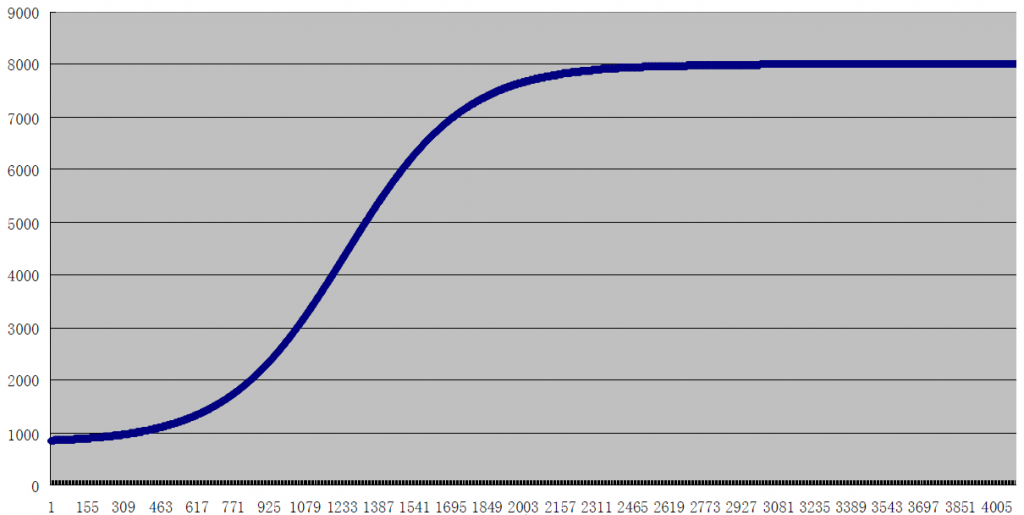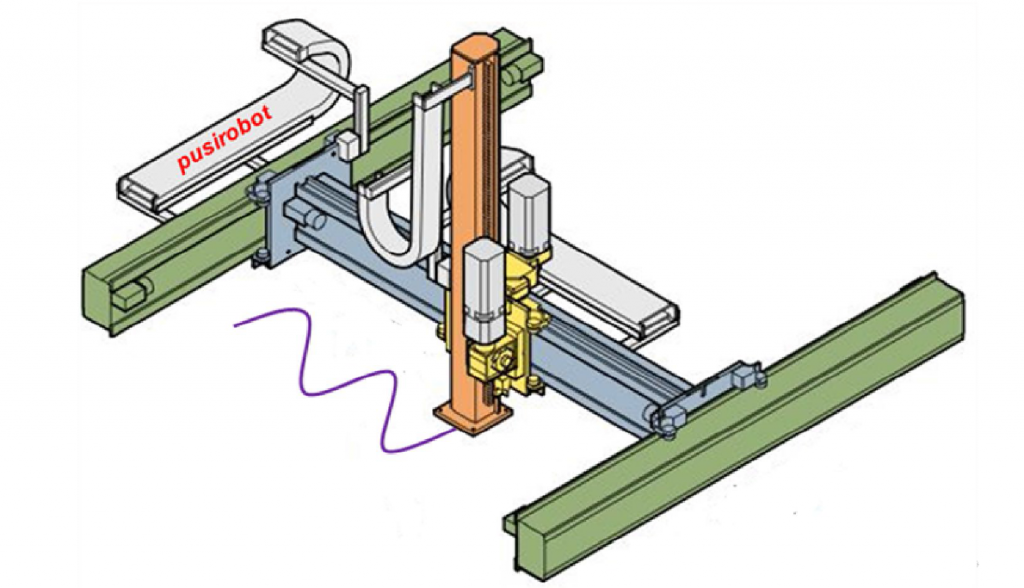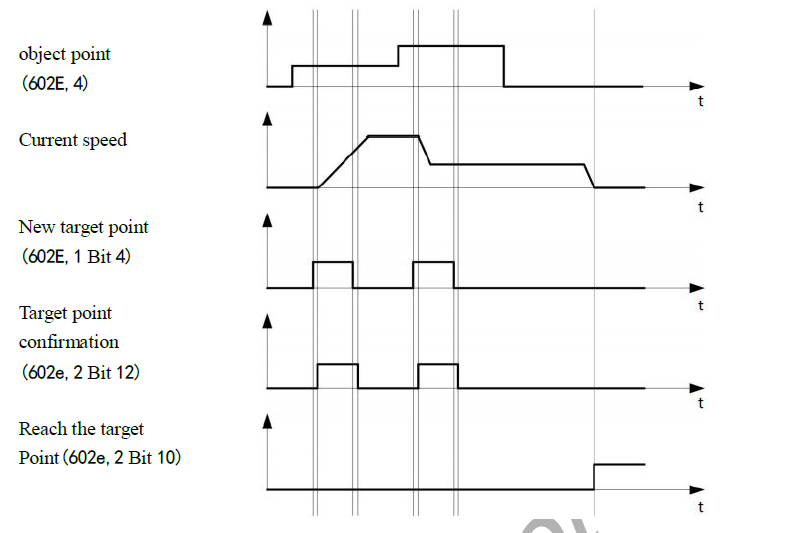- Welcome to Pulse Robot
- +86-23-63207381
- +8613677602178
- sales@pusirobot.com
IP64 Nema17 closed-loop integrated stepper motor with multi turn absolute encoder
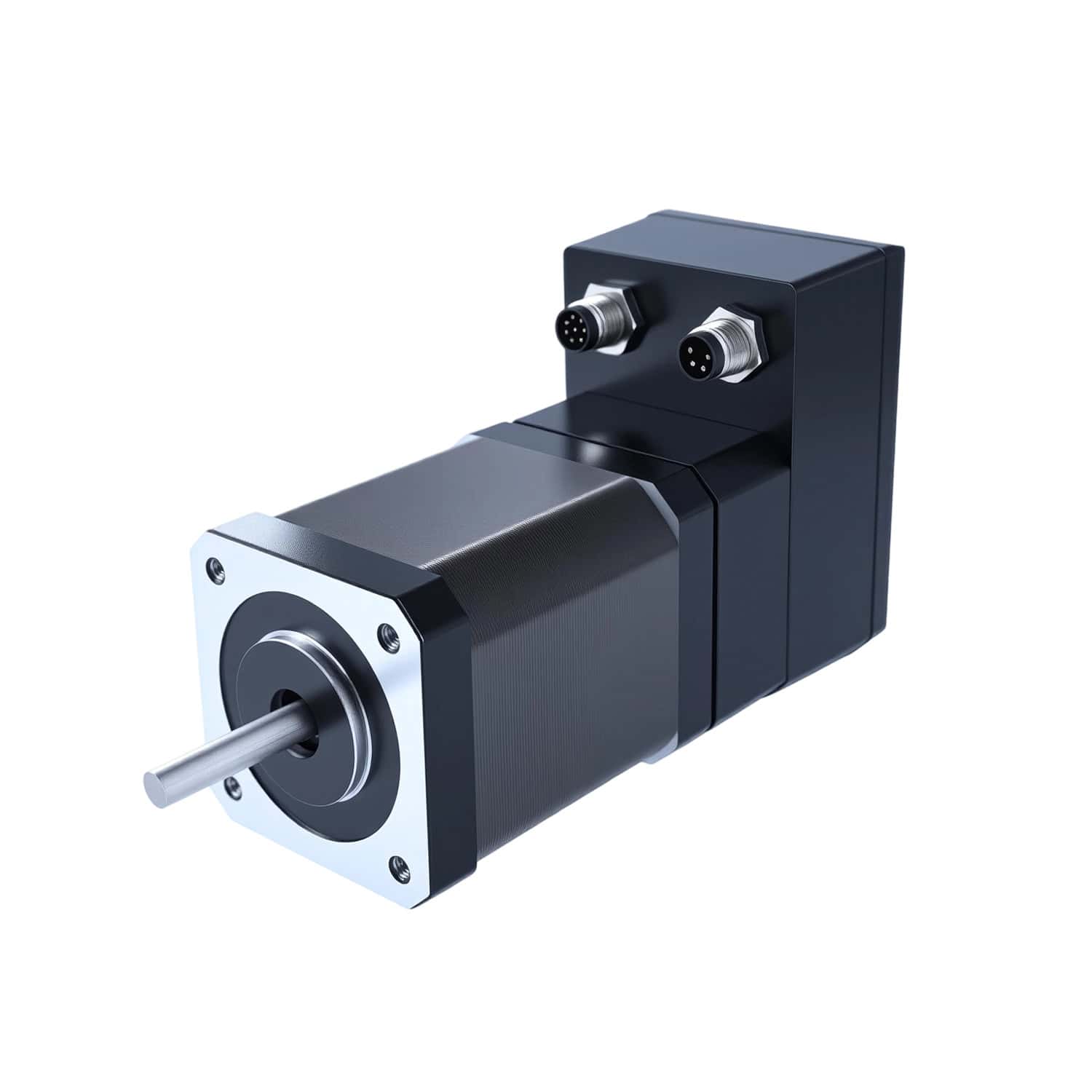
PMC006x3S
NEMA 17
L=33mm 0.28N.m
L=40mm 0.40N.m
L=47mm 0.50N.m
L=60mm 0.65N.m
Main characteristics
Technical data
General
|
Nema17 closed-loop IP64 stepper motor series
|
|
| Host |
PC,PLC,MCU
|
| Support motor |
2-phase 4-wire 1.8°/0.9° stepper motor
|
| The development environment |
VC C# Labviwe VB Linux Python
|
| The power supply voltage |
DC 12-48V
|
| Motor Current |
DC 1.2A L=33mm |
| Microstepping |
0/2/4/8/16/32/64/128 adjustable
|
| Temperature |
-40℃~80℃
|
| Incremental resolution |
Suppport external 200-8000PPR(Default 4000)
|
| Absolute resolution |
14 bit single-turn/multi-turn absolute encoder
|
| Holding torque |
0.25N.m L=33mm
0.36N.m L=40mm 0.45N.m L=47mm 0.70N.m L=60mm |
| Durability |
Over 20,000 hours
|
The input
| General I/O |
NEMA17 Absolute Integrated Stepper Motor Series
|
| IO function |
External stop input, brake control, digital input/output, analog input, factory reset, 5V output
|
| The input specifications |
Digital input voltage: 0-5V
Analog speed regulation input voltage: 0-3.3V (0-24V or 4-20mA input in special version) External stop input voltage: 0-24V |
Control mode
|
|
NEMA17 Absolute Integrated Stepper Motor Series
|
| Control mode |
Position mode, speed mode, PV mode, PP mode, high-speed torque mode, analog speed control/positioning, synchronous positioning
|
| Mode switching |
Specified instruction switching
|
Communication
|
NEMA17 Absolute Integrated Stepper Motor Series
|
|
| Protocol |
CANopen DS301/Modbus-RTU
|
| Baud rate |
5k-1M bps continuously adjustable / 9.6K-115.2K bps adjustable
|
Size
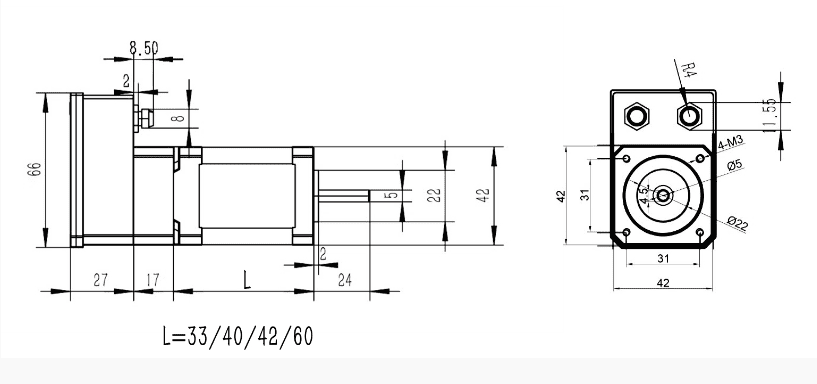
The torque curve
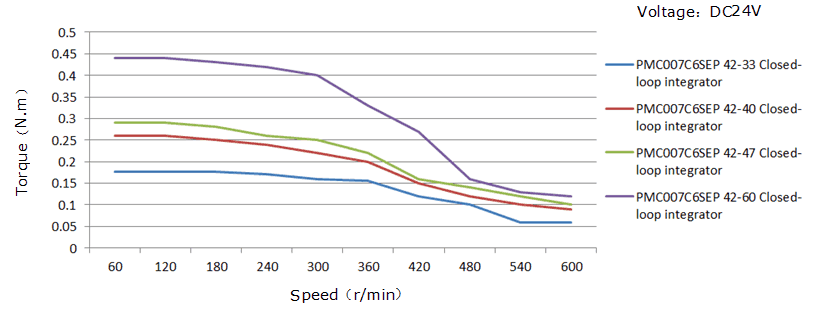
Selection guide
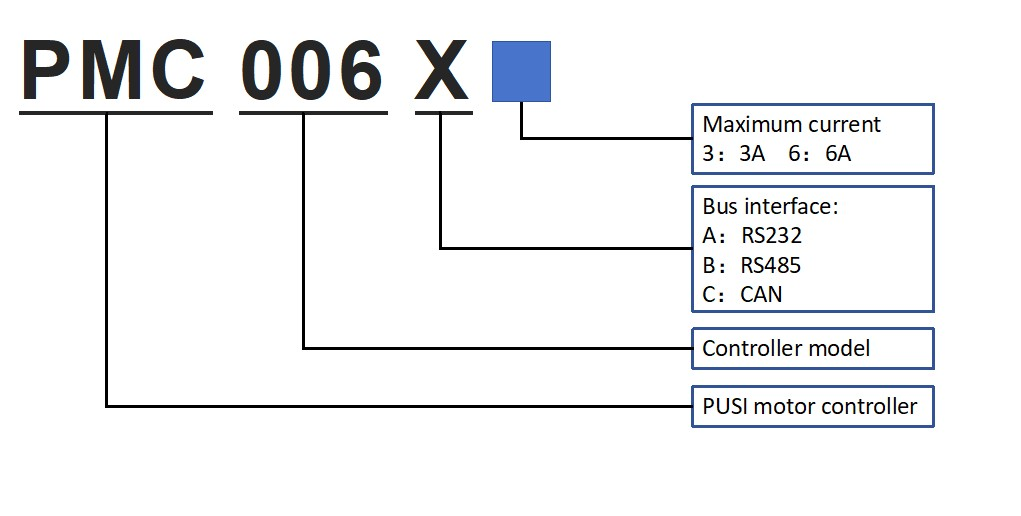
Download
| CAD |
.DWG
|
| 3D file |
.STP(Contact customer service)
|
| The user manual | |
| Debug software | |
| Development documentation | |
| Certification |
Functional features
| Function |
Description
|
| S-curve acceleration and deceleration automatic control |
Support separate configuration of starting speed, stopping speed, acceleration and deceleration. Acceleration and deceleration support 8-gear control. Acceleration and deceleration simulation diagram is as follows
|
| PVT multi-axis interpolation |
It supports precise control of the position and speed of multiple axes on the same time coordinate, so that the end mechanism can realize straight line, arc and complex curve motion trajectory, as shown in the figure below
|
| PP model |
In the process of PP mode operation, a set of new parameters can be written by the host computer. It can be selected to smooth the transition from the previous operation parameters to the new parameters, or to run with the new parameters after the operation of the old parameters, as shown in the figure below
|

